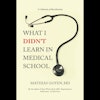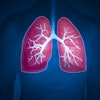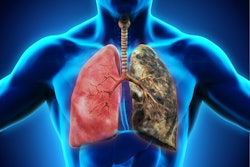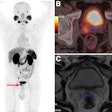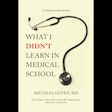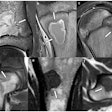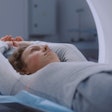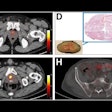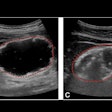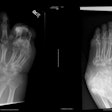Eighteen months after the launch of France's female lung cancer trial, CASCADE, valuable lessons have been learnt about the optimum approach to screening, Prof. Marie-Pierre Revel reported on Sunday at the national radiology congress, JFR 2023.
The trial, which will run in eight cities across France to validate single reading of low-dose CT plus AI as an alternative to double reading, has shed light on the prevalence of lung cancer among women and strategies for maximizing their participation, smoking cessation, and lowering stress.
Revel, who is head of radiology at Hôpital Cochin in Paris and past president of the European Society of Thoracic Imaging (ESTI), explained that women have been underrepresented in other lung cancer screening studies such as NELSON and this was one of the key reasons for initiating CASCADE.
"More research is needed in lung cancer screening in women. Women only counted for 16% of participants in NELSON. Meanwhile CASCADE has 2,400 female recruits, twice the number of female participants in NELSON who underwent CT examination," she told AuntMinnieEurope.com. "The second reason is to raise awareness of the worrying epidemiology of the incidence of lung cancer in women in Europe."
She pointed to how in France women lung cancer patients have doubled in 20 years from 16% of all lung cancer patients in 2000 to 34.7% in 2020, according to figures published in The Lancet Regional Health in 2022. Furthermore, women below the age of 50 represent 41% of lung cancer patients in France. Each year around 10,000 women die of lung cancer in the country. In 2018, for example, there were an estimated 15,132 new incidences of lung cancer among women and 10,356 women died from the disease.
The third reason for the study is the strong benefit of screening in women which in NELSON showed a 59% lung cancer mortality reduction at eight years.
Trial cities include Paris, Rennes, Béthune, Grenoble, and very soon Nancy, Bordeaux, Toulouse, and Carcassonne. Revel, who is chair of the ESR's Communication and External Affairs Committee, was keen to include Carcassonne as a center in the study because her younger cousin who was from the city died from the disease in 2022.
"While the focus of CASCADE is on women, this doesn't mean that men should be left without screening. However, women need to be targeted because of the lack of data due to under-representation. This situation must change," she said.
CASCADE was sanctioned and funded by the French cancer institute (Inca) and the French Ministry of Health. Screening coordination centers agreed to include an invitation to participate in the CASCADE study in the breast cancer screening invitation letter sent every two years to all women between the ages of 50 and 74. The flyer invited former and current smokers to apply for lung cancer screening on a national phone number and email address.
A total of 3708 women contacted the trial of which 52% were eligible. Eligibility was based on no symptoms and consumption of at least a packet of cigarettes a day for 20 years. Women who did not meet the criterion of a "20 pack-year smoking history" were told that there was no certainty they would benefit from screening but instead were pointed to smoking cessation help. Women who had symptoms, meanwhile, were directed into a different care stream.
Eleven months after the start of the study, the screening program was promoted on morning radio and online media. Feedback from participants indicated that the inclusion of the flyer was deemed the second most efficient method of invitation, with publicity on morning radio deemed most effective.
Key lessons to date
Revel cited the following lessons learned so far: strong participation through combining lung cancer screening invitation with breast cancer screening invitation, vast majority (85%) of participants) are current smokers, high percentage (75% of participants) agree to smoking cessation help, need for dedicated consultations to combat stress of indeterminate results, and more cancers are detected among women participants than expected.
The study has underlined that consultations with participants are vital, according to Revel. The women underwent an initial consultation with a pulmonologist who had undergone dedicated training for smoking cessation help. During this consultation, the specialist informed participants about the screening tests and their schedule and also explained how small opacities might lead to additional CTs but that these were common and not cause for panic, often resolving spontaneously. The pulmonologists also offered smoking cessation help through prescriptions for nicotine substitution.
"The vast majority, 85%, of trial participants are current smokers rather than former smokers and 75% accepted smoking cessation help during their first consultation before the CT screening. Participation and acceptance of smoking cessation help are good," noted Revel. "Also, despite informing participants of possible additional CT in cases of abnormality, this has proved very stressful for the women, so they have a first consultation and then another consultation before any additional CT scans."
Higher prevalence
Another lesson learned is that women with the same smoking history as men have higher lung cancer prevalence than expected, she noted. In women with equivalent smoking history, positive screens are at least 2% to 3% in CASCADE participants. In NELSON, however, where women were under-represented, positive screens were under 1%.
It is important that reading strategies are also optimized, noted Revel. While detailed interim results will be obtained later in October, Revel revealed that it was important to determine how AI can improve detection.
Screening AI
CASCADE will compare single reading by a general radiologist trained to read lung screening CT plus AI in order to double reading by expert readers.
"From the 991 screens from CASCADE I read as an expert reader, I missed two lung cancers. Each of these was picked up by the second reader. Both cancers were detected by AI. Even experienced human readers like me can miss lung cancers so AI is essential as a second reader," noted Revel.
"Is a general radiologist with AI better than two human experts? We know that a single expert doesn't work so we need to validate AI's role in lung cancer screening as has happened in the U.K., Croatia, and South Korea, where single reading is supported by AI," she said.
Participating in the Solace project, a consortium funded by the EU Health Program that collects multidisciplinary knowledge on different lung cancer work packages across Europe, CASCADE has become a reference study for data collection on women participants in lung cancer screening across 11 European countries.


